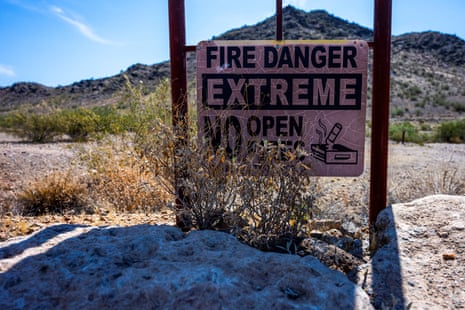US immigration is gaming Google to create a mirage of mass deportations
US immigration is gaming Google to create a mirage of mass deportations
Share:
Thousands of press releases about decade-old enforcement actions topped search results, all updated with a timestamp from after Trump’s inauguration. News of mass immigration arrests has swept across the US over the past couple of weeks. Reports from Massachusetts to Idaho have described agents from Immigration and Customs Enforcement (Ice) spreading through communities and rounding people up. Quick Google searches for Ice operations, raids and arrests return a deluge of government press releases. Headlines include “ICE arrests 85 during 4-day Colorado operation”, “New Orleans focuses targeted operations on 123 criminal noncitizens”, and in Wisconsin, “ICE arrests 83 criminal aliens”.
![[Noem talks to crowd of people]](https://i.guim.co.uk/img/media/d5e9c00790442ced12bb3193dfc253cdc05af850/0_0_2048_1298/master/2048.jpg?width=445&dpr=1&s=none&crop=none)
But a closer look at these Ice reports tells a different story. That four-day operation in Colorado? It happened in November 2010. The 123 people targeted in New Orleans? That was February of last year. Wisconsin? September 2018. There are thousands of examples of this throughout all 50 states – Ice press releases that have reached the first page of Google search results, making it seem like enforcement actions just happened, when in actuality they occurred months or years ago. Some, such as the arrest of “44 absconders” in Nebraska, go back as far as 2008.
All the archived Ice press releases soaring to the top of Google search results were marked with the same timestamp and read: “Updated: 01/24/2025”. The mystery first caught the attention of an immigration lawyer who began tracking Ice raids and enforcement actions when Donald Trump took office. She spoke on the condition of anonymity for fear of reprisal from the administration. At first, she was baffled when she clicked on these seemingly new press releases and they detailed Ice raids from more than a decade ago.
So she set to work doing some digital sleuthing and enlisted a friend who’s a tech expert to help. What they found leads them to believe that Ice is gaming Google search. Ice didn’t return a request for comment. A Google spokesperson said: “When people do these searches on Google, they’ll find a range of sources and information, including recent news articles.” She said Google aims to “reflect the last time a page was updated” and that its “systems are not designed to boost a page’s ranking simply because they update their timestamp”.
Cracking down on immigration is top of the agenda for Trump. During his inaugural address, he promised mass deportations “to repel the disastrous invasion of our country”. Since then, his administration has touted hundreds of arrests and raids have occurred in places like Los Angeles and Chicago. TV crews have followed Ice agents on raids and the homeland security secretary, Kristi Noem, has posted videos of herself on X wearing an Ice bulletproof vest in New York City. She captioned one: “Getting the dirt bags off the streets.”.
It’s Ice’s made-for-TV moment. Inundating all forms of media, including Google search, with stories of mass arrests fits into a strategy of fearmongering, said Lindsay M Harris, a law professor at the University of San Francisco who specializes in immigration and asylum law. “All of that is intended to send a message to immigrants to be afraid and that they’re coming for you,” said Harris. “Regardless of the actual numbers, the optics of these mass arrests throughout the country have very real ramifications.”.
As reports of arrests poured in last month, the immigration lawyer watched in shock. Social media and listservs filled with rumors of raids and local news programs showed Ice apprehensions in towns as small as Cartersville, Georgia, population 25,000. “There was a lot of noise online,” she said. “And it was creating terror in the community.” She said it was hard to separate fact from fiction, so she decided to create a nationwide map that aggregated all actual Ice arrests.
At the end of her work days, she’d sit down and start Googling – typing in searches like “ice arrests Nebraska” and “recent ice arrests Arizona”. Then she’d plug in other states. The lawyer noticed a strange pattern. In almost every state, at least one press release from Ice’s website appeared in Google’s top results. Nebraska, for example, surfaced links for two press releases. One said “ICE executes federal search warrants in Nebraska”, the other said “ICE fugitive operations team arrests 44 absconders”. Both displayed their dates of publication as 24 January 2025 on Google search. But when the lawyer clicked through to the report, the actual dates of publication were August 2018 and June 2008, respectively.
“I’ve now done it in all 50 states … and I’ve done it in multiple cities. And it’s the same thing,” the lawyer said. “They all had the last update of 1/24/2025 and they were all popping up at the front of the algorithm.”. Maria Andrade, a longtime immigration lawyer in Idaho, says Ice arrests have been scant in the state so far. “We had one that didn’t result in detention,” she said. “I haven’t heard of mass arrests in any area at all.”.






















